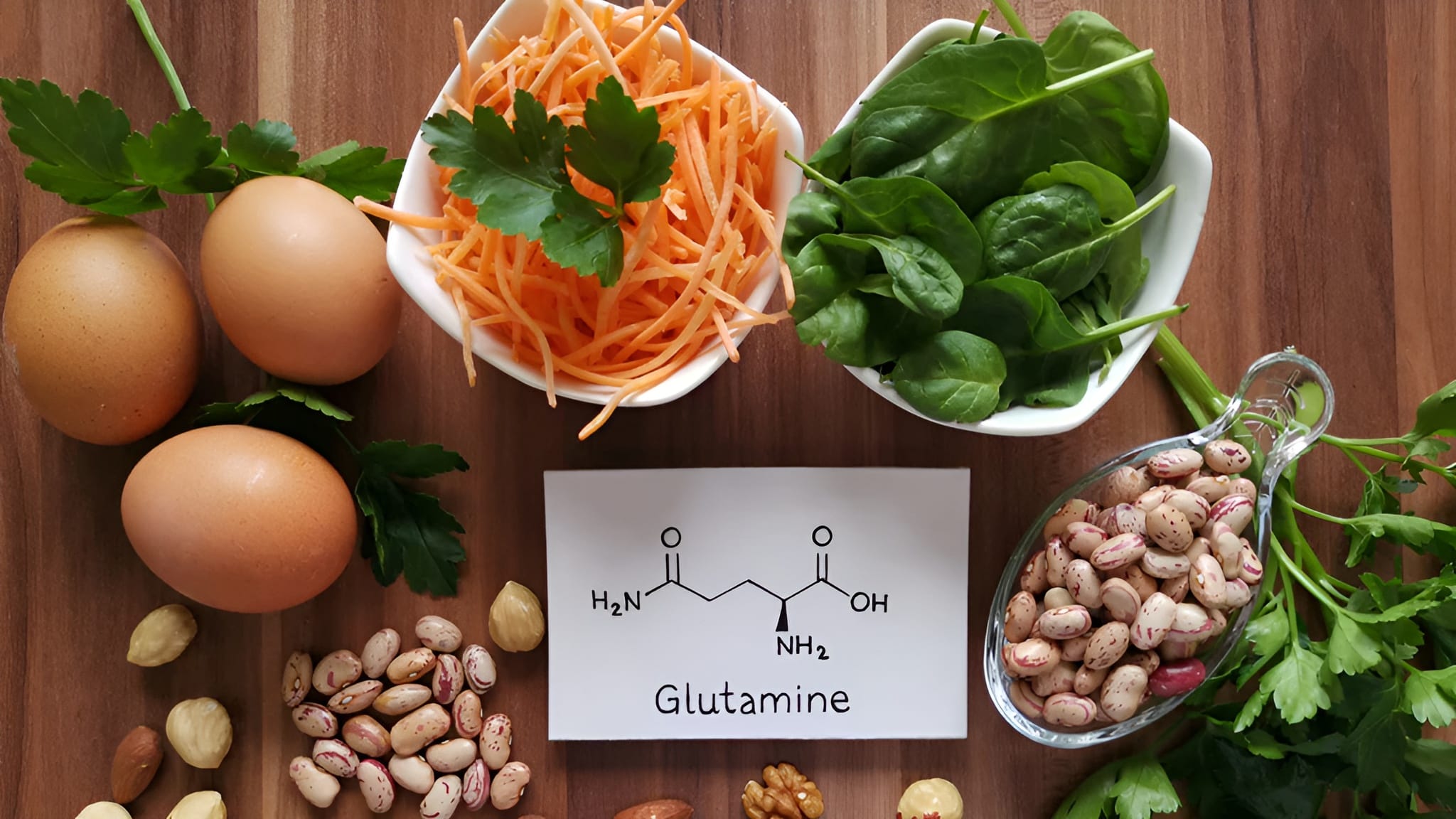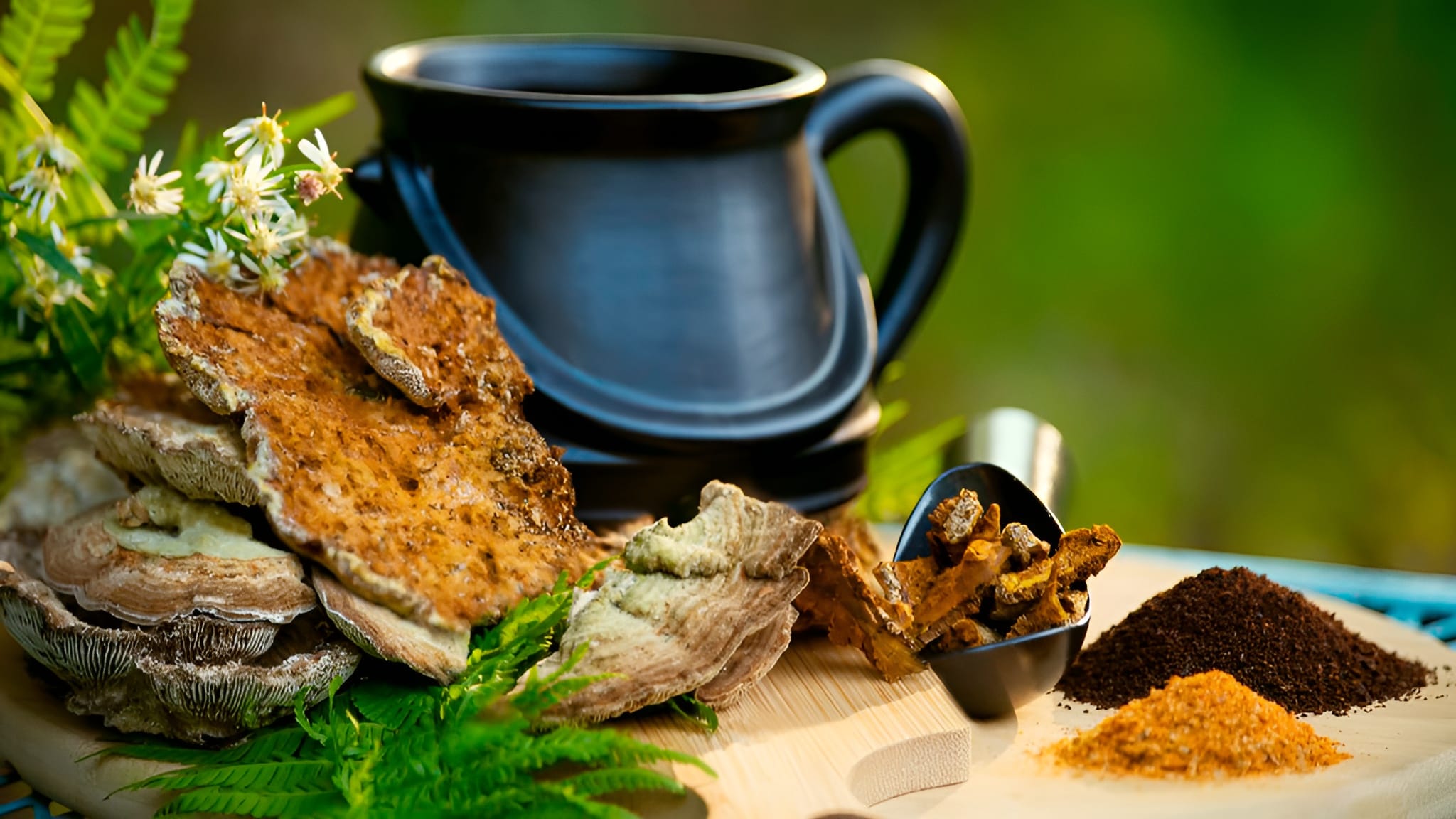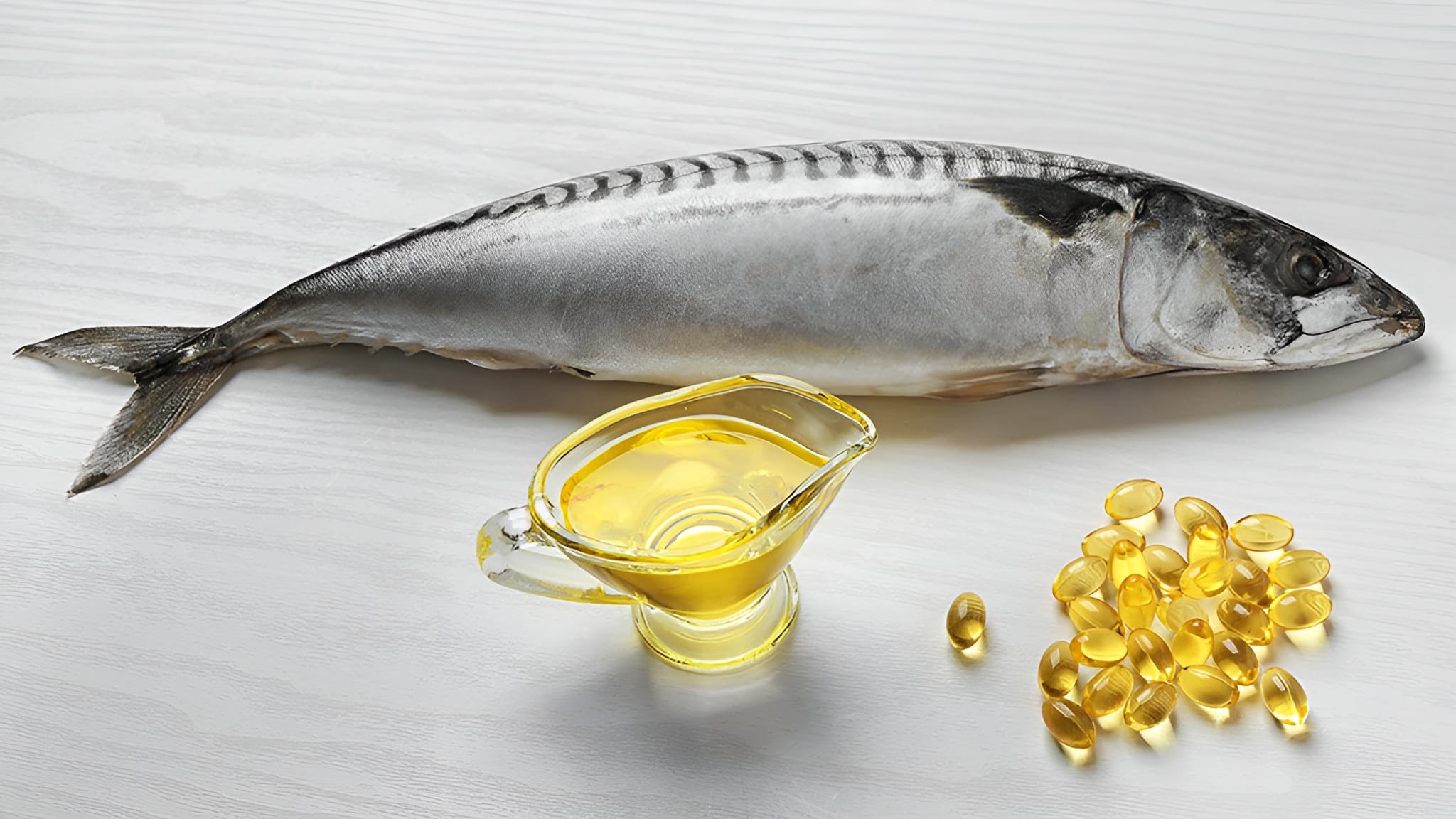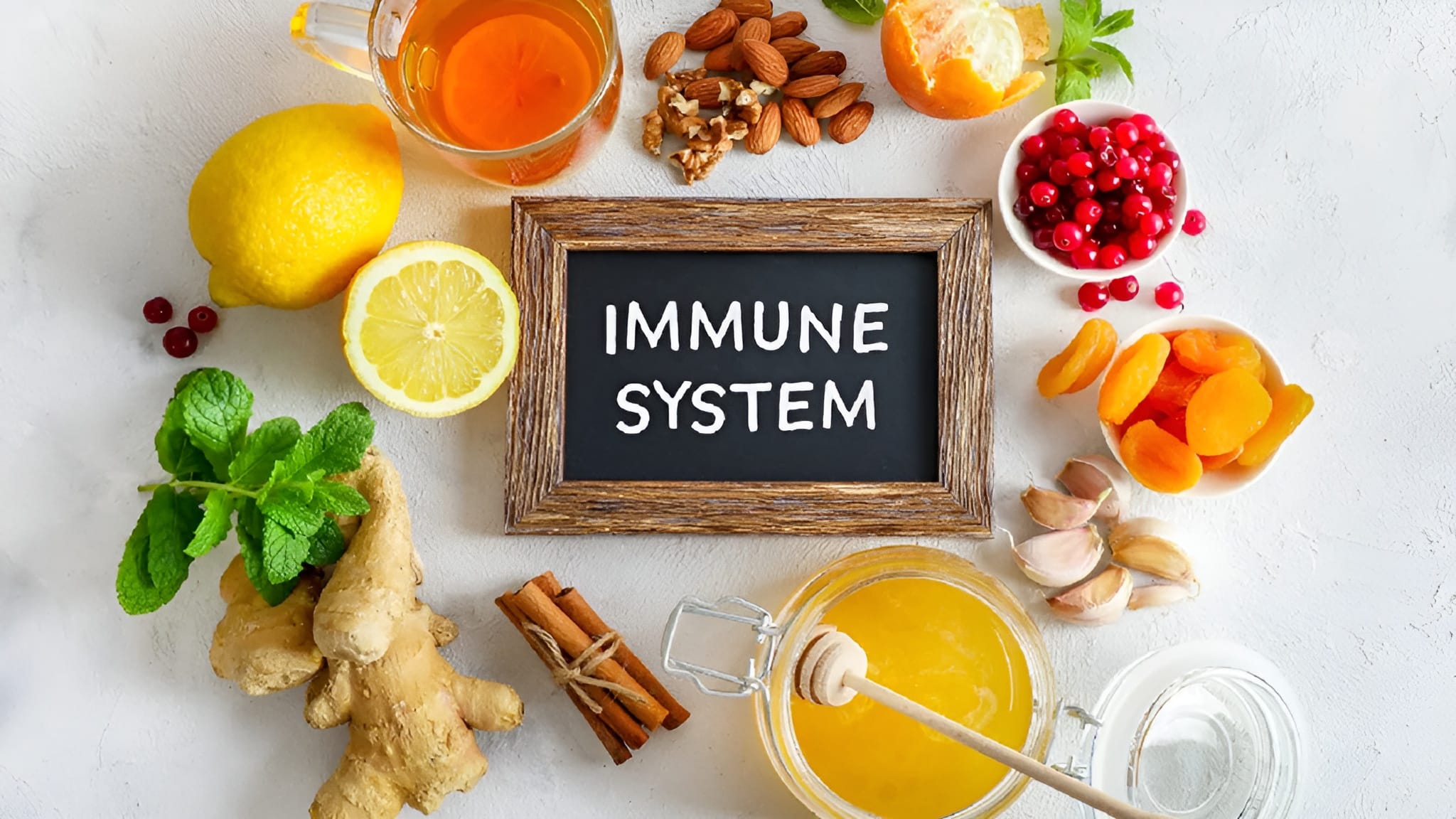Glutamine, an often-overlooked amino acid, plays a vital role in keeping your immune system strong and resilient. While all amino acids are essential for building proteins and supporting various bodily functions, glutamine has a unique connection to immune health [1].
When we talk about glutamine in this article, we’re specifically referring to L-glutamine, the form that’s most important for our discussion [2]. It’s considered a “conditionally essential” nutrient because your body usually produces enough under normal circumstances. However, during times of stress, injury, or illness, your body’s demand for glutamine increases [3], just as vitamin C, for example.
Table of Contents
Glutamine's Key Role in Immune Function
Believe it or not, your immune system uses glutamine more than it uses glucose [4]! This might seem surprising, considering that glucose is the primary energy source for most cells. But this fact highlights just how crucial glutamine is for immune function.
Here are some of the ways glutamine benefits immune health:
- T-Cell Production: Glutamine is essential for producing T-cells, also known as T lymphocytes, which are key players in your immune system’s defense against infections [5]. These white blood cells act like soldiers, seeking out and destroying harmful invaders.
- Immune Signaling: Glutamine supports the production of cytokines, small proteins that act as messengers within the immune system [6]. Cytokines regulate various immune responses, including inflammation and immune cell activity. An anti‑inflammatory diet is very important for keeping diseases at bay.
- Bacterial Defense: Neutrophils, another type of white blood cell, are responsible for fighting bacterial infections. They rely heavily on glutamine to function effectively [7][8]. In fact, neutrophils consume more glutamine than any other immune cell type.
- Gut-Immune Axis: L-Glutamine supports the gut lining. A healthy gut is very important in preventing disease.
The Impact of Glutamine Deficiency
A lack of glutamine can hinder your immune system’s ability to function optimally. This can lead to:
- Prolonged infections
- More severe symptoms
- Slower healing
Studies have shown the importance of glutamine for immune health in various situations:
- Burn victims: Burn patients who received glutamine supplements experienced improved outcomes and faster healing [9]. Amino acids such as Lysene are also very helpful for tissue repair.
- Immunocompromised patients: Maintaining healthy glutamine levels helped regulate immune function in immunocompromised individuals [10].
These findings emphasize the importance of ensuring adequate glutamine intake, especially during times of stress or illness.
Boosting Your Glutamine Levels
While your body produces glutamine naturally, you can also obtain it through your diet or supplementation.
Dietary Sources of Glutamine:
- Eggs, Wheat, Beef, Peanuts, Tofu, Corn, Rice, Milk, etc…
- Essentially, any protein-rich food will provide some glutamine.
To maximize these benefits, many people also pair with whey protein for muscle repair, giving the body a full amino acid spectrum alongside glutamine for faster recovery.
Glutamine Supplementation
If you’re dealing with a significant health challenge or want to support your immune system during illness, glutamine supplements can be beneficial.
- Dosage: The average daily intake of glutamine from food is around 3-6 grams. If you’re supplementing, start with a small dose of around 5 grams.
- Long-Term Use: The long-term effects of glutamine supplementation are still being investigated, so it’s best to consult your doctor before using it for extended periods [11]. However, supplementing with glutamine while sick can be a great way to support your immune system.
- High-Dose Supplementation: Some studies have used doses as high as 45g/day for over a month [12], but this should only be done under medical supervision.
Support Your Immune System with Glutamine
Glutamine is a crucial nutrient for maintaining a strong and resilient immune system. By ensuring adequate glutamine intake through your diet or supplementation, you can help your body fight off infections and stay healthy.
Glutamine works best as part of a nutrient-rich foundation, so don’t overlook daily vitamins and minerals for immune balance to round out your defenses.
FAQ
During stress states—hard training, poor sleep, illness, injury, or after surgery—your needs rise. That’s when topping up (diet or supplements) is most likely to help stabilize immune function.
Start with protein-rich foods (eggs, dairy, tofu, beef, legumes). If intake is low—or you’re under extra stress—L-glutamine powder/caps can fill the gap. Many people use ~5 g once daily, up to 2–3x/day in short bursts. (Always clear higher intakes with your clinician.)
Common choices: morning, post-workout, or before bed. Some prefer it away from large protein meals so it isn’t competing with other amino acids. Consistency matters more than clock time.
Evidence is mixed for day-to-day colds, but glutamine may help exercise-induced dips in immunity by supporting key immune cells and the gut barrier. It’s a “foundation helper,” not a cure.
Generally well-tolerated. Talk to your healthcare provider if you’re pregnant/breastfeeding, have kidney or significant liver disease, a history of seizures, or are in active cancer treatment (glutamine is sometimes used clinically in oncology support, but only under medical guidance).
Great pairs: vitamin D, zinc, omega-3s, a quality probiotic/prebiotic, plus sleep, protein, and stress management. For gut lining support, glutamine + probiotic + fiber is a classic trio.
Cites and Sources
No Citations
Show Citations
[1] - Kim, H. Y. (2011). Glutamine as an immunonutrient. Yonsei Medical Journal, 52(6), 892. https://doi.org/10.3349/ymj.2011.52.6.892
[2] - Newsholme, P., Procópio, J., Lima, M. M. R., Pithon-Curi, T. C., & Curi, R. (2002). Glutamine and glutamate—their central role in cell metabolism and function. Cell Biochemistry and Function, 21(1), 1–9. https://doi.org/10.1002/cbf.1003
[3] - P;, N. (n.d.). Why is L-glutamine metabolism important to cells of the immune system in health, postinjury, surgery or infection?. The Journal of nutrition. https://pubmed.ncbi.nlm.nih.gov/11533304/
[4] - Cruzat, V. F., Rogero, M. M., Keane, K. N., Curi, R., & Newsholme, P. (2018). Glutamine: metabolism and immune function, supplementation and clinical translation. Nutrients, 10(11), 1564. https://doi.org/10.3390/nu10111564
[5] - Ardawi, M. S. M., & Newsholme, E. A. (1982). Maximum activities of some enzymes of glycolysis, the tricarboxylic acid cycle and ketone-body and glutamine utilization pathways in lymphocytes of the rat. Biochemical Journal. Cellular Aspects, 208(3), 743–748. https://doi.org/10.1042/bj2080743
[6] - Roth, E. (2008). Nonnutritive effects of glutamine. The Journal of Nutrition, 138(10), 2025S-2031S. https://doi.org/10.1093/jn/138.10.2025s
[7] - Pithon-Curi, T. C., De Melo, M. P., & Curi, R. (2004). Glucose and glutamine utilization by rat lymphocytes, monocytes and neutrophils in culture: a comparative study. Cell Biochemistry and Function, 22(5), 321–326. https://doi.org/10.1002/cbf.1109
[8] - Pithon-Curi, T. C., Trezena, A. G., Tavares‐Lima, W., & Curi, R. (2001). Evidence that glutamine is involved in neutrophil function. Cell Biochemistry and Function, 20(2), 81–86. https://doi.org/10.1002/cbf.954
[9] - M;, C. L. A. (n.d.). Pharmacokinetics of supplemental omega-3 fatty acids esterified in monoglycerides, ethyl esters, or triglycerides in adults in a randomized crossover trial. The Journal of nutrition. https://pubmed.ncbi.nlm.nih.gov/33564872/
[10] - Glutamine and the immune system. (1999). PubMed. https://doi.org/10.1007/BF01366922
[11] - Holeček, M. (2012). Side effects of Long‐Term glutamine supplementation. Journal of Parenteral and Enteral Nutrition, 37(5), 607–616. https://doi.org/10.1177/0148607112460682
[12] - Candow, D. G., Chilibeck, P. D., Burke, D., Davison, S., & Smith‐Palmer, T. (2001). Effect of glutamine supplementation combined with resistance training in young adults. European Journal of Applied Physiology, 86(2), 142–149. https://doi.org/10.1007/s00421-001-0523-y





